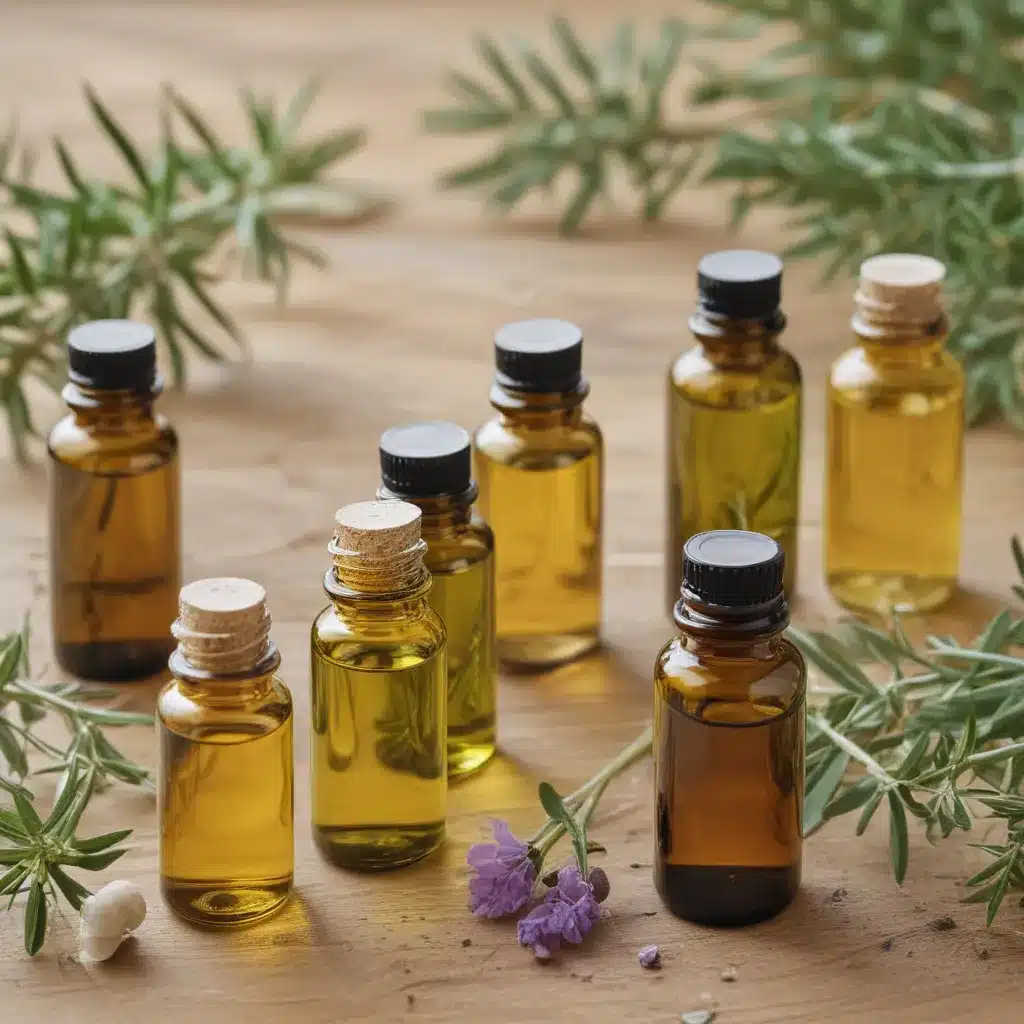
After hitting the gym and feeling the burn, I found myself searching for a natural way to ease my sore muscles. Essential oils have been a game-changer, offering a range of benefits from relaxation to muscle recovery. From the calming effects of Lavender to the cooling sensation of Peppermint, each oil seems to have a unique way of aiding post-workout recovery. But which oils are best for muscle relaxation, and how can they help soothe those aching muscles?
Benefits of Essential Oils
When used consistently, essential oils can provide a wide range of benefits for post-workout muscle relaxation. Aromatherapy benefits from essential oils can aid in easing muscle tension, reducing inflammation, and promoting overall relaxation. Essential oil blends are carefully curated combinations of different oils that work synergistically to enhance these benefits.
One of the primary aromatherapy benefits of essential oils for post-workout muscle relaxation is their ability to soothe sore muscles. Oils like peppermint and eucalyptus have cooling properties that can help alleviate muscle aches and pains after a strenuous workout. Additionally, oils such as lavender and chamomile are known for their calming effects, which can contribute to a sense of relaxation and ease tension in the muscles.
Essential oil blends specifically designed for post-workout recovery often include a mix of these different types of oils to target various aspects of muscle relaxation. For example, a blend containing peppermint for cooling, lavender for calming, and rosemary for pain relief can create a holistic approach to easing muscle soreness and promoting overall relaxation. By incorporating these essential oil blends into your post-workout routine, you can enhance your recovery process and experience the benefits of aromatherapy for muscle relaxation.
Lavender for Relaxation
Lavender essential oil is renowned for its calming and relaxing properties, making it a popular choice for promoting muscle relaxation post-workout. When using lavender aromatherapy for relaxation, its soothing scent can help ease tension in both the mind and body. Personally, I find it incredibly effective in aiding my post-exercise recovery. Here are some key points to take into account when using lavender essential oil for muscle relaxation:
- Calming Effects: The gentle aroma of lavender can help reduce stress and anxiety, allowing for a more essential state of mind.
- Muscle Tension Relief: Lavender oil has muscle-relaxing properties that can help alleviate tightness and soreness after a workout.
- Improved Sleep: Incorporating lavender into relaxation techniques can promote better sleep quality, essential for muscle recovery.
- Stress Reduction: By using lavender aromatherapy post-workout, you can lower cortisol levels and enhance relaxation.
- Mind-Body Connection: The holistic benefits of lavender oil extend beyond physical relaxation, aiding in mental rejuvenation as well.
Incorporating lavender essential oil into your post-workout routine can enhance your recovery process by promoting relaxation and reducing muscle tension. Whether through diffusing the oil, adding it to a bath, or using it in a massage oil, the calming effects of lavender can truly make a difference in how your body feels after exercise.
Peppermint for Cooling Effect
Peppermint essential oil is renowned for its cooling effect, making it an excellent choice for post-workout muscle relaxation. The menthol present in peppermint oil provides a soothing sensation that can help relieve muscle tension and discomfort. Applying diluted peppermint oil to the skin post-exercise may offer a invigorating and cooling sensation, aiding in muscle recovery.
Soothing Peppermint Oil
After a strenuous workout, applying soothing peppermint oil can provide an invigorating cooling effect on fatigued muscles. Peppermint benefits extend beyond its invigorating scent; its natural properties can aid in muscle relaxation. Here are some key points to contemplate when using peppermint oil for post-workout recovery:
- Peppermint oil contains menthol, which delivers a cooling sensation to the skin.
- It helps reduce muscle soreness and discomfort after exercise.
- The anti-inflammatory properties of peppermint oil can assist in alleviating muscle tension.
- When massaged onto the skin, it promotes increased blood flow to the muscles.
- Peppermint oil can contribute to a sense of rejuvenation and overall well-being post-exercise.
Muscle Tension Relief
To alleviate muscle tension and provide an invigorating cooling effect post-workout, incorporating peppermint oil into your recovery routine can be highly beneficial. The menthol in peppermint oil acts as a natural muscle relaxant, helping to ease tension and reduce soreness. Additionally, the cooling sensation it provides can be incredibly soothing after a strenuous workout. To enhance the effects of peppermint oil, consider incorporating stretching techniques and foam rolling benefits into your post-workout routine. Stretching helps increase flexibility and range of motion, while foam rolling aids in breaking up muscle knots and improving circulation. By combining these practices with the use of peppermint oil, you can optimize your muscle recovery process effectively.
| Stretching Techniques | Foam Rolling Benefits | Peppermint Oil Cooling Effect |
|---|---|---|
| Increases flexibility | Breaks up muscle knots | Soothes and relaxes muscles |
| Improves range of motion | Improves circulation | Provides a cooling sensation |
| Helps prevent injuries | Reduces muscle soreness | Enhances post-workout recovery |
Eucalyptus for Soothing Muscles
Using eucalyptus essential oil after a workout can help relax and soothe tired muscles. Eucalyptus benefits muscle recovery by reducing inflammation, increasing blood circulation, and providing a cooling sensation that eases discomfort. Here are five reasons why eucalyptus is great for soothing muscles:
- Anti-inflammatory Properties: Eucalyptus oil contains compounds that help reduce inflammation in muscles, aiding in faster recovery.
- Improved Circulation: The oil’s warming effect can enhance blood flow to the muscles, promoting healing and relaxation.
- Muscle Relaxation: Eucalyptus oil has a calming scent that can help relax both the mind and body after a strenuous workout.
- Pain Relief: Its analgesic properties make it effective in alleviating muscle aches and pains.
- Easy Application: Eucalyptus oil can be easily applied through massage or diluted in a warm bath for a relaxing post-workout soak.
Incorporating eucalyptus oil into your muscle recovery techniques can be a natural and effective way to enhance your post-workout routine. Whether you prefer to massage it directly onto your skin or diffuse it in the air for a calming ambiance, eucalyptus can be a valuable addition to your relaxation regimen.
Rosemary for Muscle Recovery
I discovered that rosemary essential oil has remarkable benefits for muscle recovery, thanks to its anti-inflammatory and analgesic properties. It can help relax muscles, reduce pain, and improve circulation post-workout. Incorporating rosemary oil into your post-exercise routine may aid in faster recovery and overall muscle relaxation.
Rosemary Benefits
Rosemary offers significant benefits for muscle recovery, aiding in post-workout relaxation and rejuvenation. When using rosemary oil for muscle recovery, consider the following:
- Anti-Inflammatory Properties: Rosemary oil reduces inflammation in sore muscles.
- Improved Circulation: Enhances blood flow to promote faster healing.
- Muscle Relaxation: Eases muscle tension and stiffness after workouts.
- Pain Relief: Alleviates muscle pain and discomfort.
- Stress Reduction: Helps in calming the mind and body post-exercise.
To maximize the benefits of rosemary for muscle recovery, try blending it with complementary oils like lavender or peppermint. Apply a few drops of the blend to the affected areas and gently massage for best results.
Muscle Relaxation Properties
After a workout, it’s important to focus on the muscle relaxation properties of rosemary oil to aid in post-exercise recovery. Rosemary oil offers excellent muscle recovery benefits due to its natural anti-inflammatory and analgesic properties. When used in relaxation techniques such as massage or aromatherapy, rosemary oil can help ease muscle tension, reduce soreness, and promote overall relaxation after a strenuous workout. Its invigorating scent can also help uplift the mood and enhance feelings of well-being. Incorporating rosemary oil into your post-workout routine can be a soothing and effective way to support your muscles’ recovery process.
| Benefits of Rosemary Oil | Muscle Recovery Techniques |
|---|---|
| Anti-inflammatory properties | Massage therapy |
| Analgesic effects | Aromatherapy sessions |
| Mood enhancement | Warm compress application |
Chamomile for Calming Sensation
With its soothing properties, chamomile is a popular choice for promoting a calming sensation after a workout. Chamomile essential oil aids in stress relief and relaxation, making it an excellent choice for unwinding post-exercise. Here are some key benefits of using chamomile for muscle recovery and overall well-being:
- Calming Effect: Chamomile is well-known for its calming effects on the mind and body, helping to reduce stress and promote relaxation.
- Muscle Tension Relief: The gentle nature of chamomile essential oil can help ease muscle tension, providing relief after a strenuous workout.
- Improved Sleep Quality: By promoting relaxation, chamomile oil can support better sleep quality, aiding in the body’s natural recovery process.
- Anti-Inflammatory Properties: Chamomile contains anti-inflammatory compounds that can help reduce inflammation in muscles, supporting quicker recovery.
- Mood Enhancement: The pleasant aroma of chamomile can uplift mood and create a sense of well-being, enhancing the overall post-workout recovery experience.
Incorporating chamomile essential oil into your post-workout routine can be a simple yet effective way to enhance relaxation, support muscle recovery, and promote overall well-being.
Tea Tree for Muscle Pain Relief
Tea Tree essential oil offers a natural solution for relieving muscle pain and discomfort post-workout. Its benefits extend beyond its well-known antiseptic properties. When it comes to muscle recovery, Tea Tree essential oil can be a game-changer. This powerful essential oil contains anti-inflammatory and analgesic properties that can help alleviate muscle pain and soreness, making it an excellent choice for soothing those aching muscles after a strenuous workout.
Using Tea Tree essential oil for muscle pain relief is simple yet effective. You can create a DIY massage oil by combining a few drops of Tea Tree essential oil with a carrier oil like coconut or almond oil. Gently massage this blend onto the affected muscles to help reduce inflammation and promote relaxation. Alternatively, you can add a few drops of Tea Tree essential oil to your post-workout bath for a soothing soak that will help ease muscle tension.
Incorporating Tea Tree essential oil into your post-workout routine can enhance your overall recovery process. Its natural healing properties can support muscle repair and reduce the discomfort associated with intense physical activity. By harnessing the power of essential oils like Tea Tree, you can take proactive steps towards caring for your muscles and promoting a faster recovery time.
Ginger for Warming Sensation
Exploring the benefits of Ginger essential oil introduces a warming sensation that can complement post-workout muscle relaxation routines. Ginger’s unique properties make it a valuable addition to your recovery arsenal. Here’s why:
- Ginger benefits: Ginger essential oil is known for its anti-inflammatory properties, which can help reduce muscle soreness and promote faster recovery after a workout.
- Muscle recovery: By stimulating circulation, ginger oil aids in delivering oxygen and nutrients to tired muscles, supporting their repair and regeneration.
- Warming sensation: When applied topically, ginger oil creates a gentle heat that can soothe aching muscles and joints, enhancing relaxation post-exercise.
- Post-exercise recovery: Incorporating ginger oil into your post-workout routine may help alleviate stiffness and improve flexibility, allowing you to bounce back quicker for your next session.
- Versatile application: Whether used in massage oils, bath blends, or diffusers, ginger oil offers a versatile way to enjoy its warming benefits and promote overall well-being.
Frankincense for Relaxing Muscles
I’ve discovered that frankincense essential oil is excellent for soothing muscle tension after a tough workout. This oil can enhance muscle recovery, allowing you to bounce back faster for your next session. Additionally, the calming properties of frankincense promote muscle relaxation, helping you unwind and rejuvenate after exercise.
Soothing Muscle Tension
To promote muscle relaxation after a workout, incorporating frankincense essential oil into your post-exercise routine can be beneficial. Frankincense offers soothing properties that can help relieve muscle tension and promote overall relaxation. Here are some ways to enhance your muscle recovery using frankincense essential oil:
- Apply diluted frankincense oil topically to targeted muscle areas.
- Add a few drops of frankincense oil to a warm bath for a relaxing soak.
- Use frankincense oil during a post-workout massage session.
- Mix frankincense oil with a carrier oil for a DIY muscle-relaxing massage blend.
- Diffuse frankincense oil in your post-workout recovery space for a calming ambiance.
Enhancing Muscle Recovery
After addressing muscle tension, focusing on enhancing muscle recovery through the use of frankincense essential oil can further aid in post-workout relaxation and recovery. Recovery methods play an important role in optimizing muscle repair and growth. Incorporating stretching techniques alongside frankincense oil application can promote blood circulation, aiding in the delivery of oxygen and nutrients to tired muscles. Stretching post-workout helps prevent stiffness and promotes flexibility, important for overall muscle health. Frankincense’s anti-inflammatory properties can also assist in reducing muscle soreness and swelling, expediting the recovery process. By combining proper recovery methods and the use of frankincense essential oil, you can support your muscles in recovering faster and more effectively, ensuring you are ready for your next workout session.
Promoting Muscle Relaxation
Using frankincense essential oil can effectively relax muscles post-workout, aiding in the recovery process and promoting overall muscle health. Frankincense is known for its soothing properties, making it an ideal choice for muscle relaxation after a workout. Here are some ways to incorporate frankincense into your post-workout routine:
- Add a few drops of frankincense oil to a carrier oil and massage it onto the muscles.
- Create a relaxing post-workout bath by adding frankincense oil to Epsom salts.
- Diffuse frankincense oil in your room to promote a calming atmosphere.
- Mix frankincense oil with a gentle lotion and apply it to the muscles for a soothing effect.
- Combine frankincense oil with other relaxing oils like lavender for enhanced muscle relaxation.
Lemongrass for Muscle Tension
Lemongrass essential oil is known for its efficacy in relieving muscle tension after intense workouts. Its invigorating scent and therapeutic properties make it a popular choice for post-workout recovery. Lemongrass benefits include its ability to soothe aching muscles and promote relaxation, helping to ease the tension built up during exercise.
Here is a table outlining the key benefits of Lemongrass essential oil for muscle tension relief:
| Benefits of Lemongrass for Muscle Tension |
|---|
| 1. Reduces inflammation and swelling |
| 2. Alleviates muscle spasms |
| 3. Improves circulation for faster recovery |
Bergamot for Muscle Relaxation
For muscle relaxation post-workout, Bergamot essential oil offers an invigorating and soothing aromatic experience, known for its calming effects on tense muscles. Bergamot benefits include its ability to relieve muscle tension and promote relaxation after a strenuous workout. Here are some ways Bergamot essential oil can aid in muscle relaxation:
- Calming Properties: Bergamot essential oil has natural compounds that help relax the mind and body, reducing overall muscle tension.
- Anti-Inflammatory Effects: By reducing inflammation in muscles, Bergamot oil can alleviate post-workout soreness and discomfort.
- Improved Circulation: Bergamot oil can enhance blood flow, aiding in the delivery of oxygen and nutrients to muscles for faster recovery.
- Stress Relief: The pleasant aroma of Bergamot oil can help alleviate stress and anxiety, creating a more relaxing post-workout environment.
- Muscle Recovery: Bergamot essential oil supports muscle recovery by soothing tired and overworked muscles, promoting a quicker return to peak performance.
Incorporating Bergamot essential oil into your post-workout routine can enhance your muscle relaxation techniques and contribute to a more effective recovery process. Whether used in massage oils, diffusers, or baths, Bergamot oil can be a valuable addition to your post-exercise regimen, helping you unwind and rejuvenate after a demanding workout session.
Marjoram for Muscle Spasms
When dealing with muscle spasms post-workout, Marjoram essential oil proves to be a soothing and effective remedy for promoting muscle relaxation and recovery. Marjoram, with its calming properties, can help relieve muscle tension and spasms, making it a valuable addition to muscle recovery techniques.
One of the key benefits of Marjoram essential oil is its ability to relax muscles and alleviate spasms. Its analgesic properties can help reduce pain associated with muscle spasms, allowing for a more comfortable recovery process. By incorporating Marjoram oil into your post-workout routine, you can support your muscles in relaxing and unwinding after intense physical activity.
To make the most of Marjoram’s benefits for muscle spasms, consider diluting a few drops of the essential oil with a carrier oil like coconut or almond oil, and gently massage it into the affected area. This can help increase circulation, reduce inflammation, and promote overall muscle relaxation.
Cypress for Muscle Fatigue
After a strenuous workout, utilizing Cypress essential oil can aid in combating muscle fatigue and promoting recovery through its rejuvenating properties. Cypress, with its unique benefits, can be a valuable addition to your post-workout routine. Here are some reasons why Cypress essential oil can be beneficial for muscle recovery:
- Improves Circulation: Cypress essential oil is known for its ability to enhance blood flow, which can help deliver oxygen and nutrients to tired muscles, promoting faster recovery.
- Reduces Inflammation: The anti-inflammatory properties of Cypress oil can help decrease swelling and pain in fatigued muscles, allowing for quicker relief after a workout.
- Eases Muscle Tension: The calming effects of Cypress oil can help relax tight muscles, reducing discomfort and stiffness associated with muscle fatigue.
- Supports Lymphatic System: Cypress oil can aid in detoxifying the body by supporting the lymphatic system, helping to remove toxins and waste products accumulated during intense exercise.
- Boosts Energy Levels: By alleviating muscle fatigue and promoting relaxation, Cypress oil can help restore energy levels, making it easier to bounce back from a demanding workout.
Incorporating Cypress essential oil into your post-workout recovery routine can provide a natural and effective way to combat muscle fatigue and support overall muscle health.
Clary Sage for Muscle Soreness
Cypress essential oil’s muscle-relaxing properties pave the way for exploring the benefits of Clary Sage in alleviating muscle soreness post-workout. When it comes to muscle recovery essentials, Clary Sage stands out for its soothing and anti-inflammatory properties that can help ease the discomfort of sore muscles. Here are some key benefits of Clary Sage for muscle soreness:
| Benefits of Clary Sage for Muscle Soreness |
|---|
| 1. Anti-inflammatory: Reduces swelling and inflammation in sore muscles. |
| 2. Muscle Relaxant: Helps relax tense muscles, aiding in faster recovery. |
| 3. Pain Relief: Alleviates pain and discomfort associated with muscle soreness. |
| 4. Stress Reduction: Its calming aroma can help reduce stress, promoting overall relaxation. |
| 5. Improved Circulation: Stimulates blood flow to the muscles, aiding in recovery. |
Incorporating Clary Sage into your post-workout routine can be a game-changer in how your muscles feel after a strenuous session. Whether you choose to dilute it with a carrier oil for a soothing massage or diffuse it to enjoy its aromatic benefits, Clary Sage can be a valuable addition to your muscle recovery arsenal. So, the next time your muscles are feeling tight and sore, consider turning to the natural healing powers of Clary Sage for some much-needed relief.
Conclusion
Just like a soothing melody that helps you unwind after a long day, essential oils can be the harmonious tune your muscles need for post-workout relaxation. With scents like lavender, peppermint, and eucalyptus, these oils can help ease muscle tension, reduce soreness, and promote faster recovery. So next time you hit the gym, don’t forget to add these aromatic notes to your post-workout routine for a symphony of muscle relaxation.





















